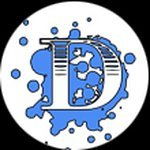How My Mother's Belief in Every Student Shaped My Life
May 10th 2020. Mothers Day
Today I have been thinking about my mother, Sarah Lincoln Lorenz (Mitchell). Specifically I have been holding the realization of her profound impact on my life. As a woman, sharing a house with four dyslexic men, She articulated a vision of Neurodiversity before the word existed. Like many women who discover their children are divergent, she went back to school to become an expert in learning diversity.
First she trained to be an Orton Gillingham Tutor, through the Carroll School. I remember driving out to Lincoln every day in the summer to attend the tutor training institute. She was training to be a tutor and I was training other tutors as a dyslexic “specimen.” From there, she went on to earn a Master's and Phd in Education. Whether teaching adolescents early in her professional life to developing teacher licensure programs later on, Sarah believed profoundly in the potential and immeasurable value of every learner. She was always a champion for the confused, the unconfident and the discouraged. She loved her students and she wanted very much for them to love themselves, as well.
When she was first diagnosed with lung cancer, I had the remarkable privilege of being her colleague, both of us teaching in the Adult Degree program of the Union Institute and University. At the time, she was scheduled to teach her course on Women and Friendship, vigorously untangling the ways the patriarchal culture pits women against each other as a tool of oppression, but she was concerned she would not have the energy to give her students the fullness of herself. It was a popular class, and the students implored her to teach it, so my mother and I decided to teach the class together. She would lead the discussions and present the various perspectives, and I would provide feedback on the papers and manage the assessments.
Over that semester, I witnessed how rigorous education -- steeped in a belief in the ability of every learner exactly as she is -- can profoundly transform a group of students. She used to giggle about the need to challenge people's deeply held beliefs, and challenge them she did. She was frighteningly smart and fearless in her honest criticism, but at the heart, every student knew Sarah cared passionately about their experience of the world. She took people exactly as they were; she celebrated their hard earned wisdom and pushed them to believe in themselves above all else. Fearlessly honest and unconditionally optimistic -- Sarah showed me the potential for education as a living creation between equal and autonomous minds.
Now, Sarah eventually came to identify herself as neurodivergent toward the end of her life, though never formally diagnosed. She was adamant that each of the teachers she helped earn certification understood that the kids who struggle are their greatest asset. She was clear that teachers need to recognize the individual struggle is an opportunity for everyone to learn, and that everyone will succeed if you bother to teach them.
If there is one example my mother made that I wish to emulate as an educator, as a thinker, as a writer, it was her unshakeable confidence in every student. She recognized the silencing power of neurotypical paradigm and she stood against it with the full force of her passion. Her work -- from her doctoral thesis to her very being -- presented a new paradigm for education -- one that recognizes the value of all minds.
Not only did I follow in her footsteps by going into the field of education, It is my belief in her paradigm that drives me to publish Divergents Magazine.
